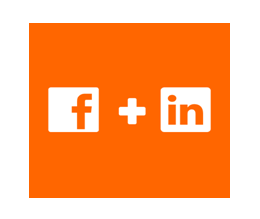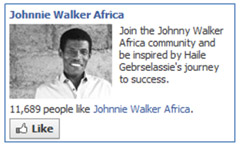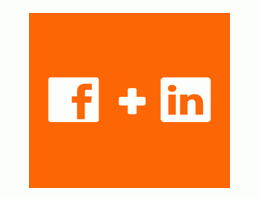 After publishing a couple of articles focused on how local businesses are using and not using social media, we recently had a telephone interview with Adrian Hewlett to get an expert opinion. Adrian is the founder and CEO of the South African based Habari Group, which has a division (Habari Media) dedicated to Social Media sales and consultancy services. The company works directly with Facebook and LinkedIn across the African continent and has gained headway in prime markets like Nigeria and Kenya.
After publishing a couple of articles focused on how local businesses are using and not using social media, we recently had a telephone interview with Adrian Hewlett to get an expert opinion. Adrian is the founder and CEO of the South African based Habari Group, which has a division (Habari Media) dedicated to Social Media sales and consultancy services. The company works directly with Facebook and LinkedIn across the African continent and has gained headway in prime markets like Nigeria and Kenya.
Adrian set the tone by describing the evolution of marketing and communications from passive dialogue (one way) to an era of inclusivity (two way). Whereas one side was unleashing ad campaigns and bombarding consumers from every possible angle, this is no longer the case. Consumers now have the power to either build or destroy brands, due to the fact that social media has availed them an outlet to express themselves. From such a standpoint social media has totally transformed marketing and communications and the way brands and organizations function.
Instead of putting up a Facebook page and a link to it on the company’s homepage, brands can use such a platform for Research and Development and to drive opinions. They can also run competitions and increase product visibility. Companies start and end with consumers (the customer is king…), factoring them into the decision making process is a critical part of influencing opinion and increasing market share. Every consumer takes pride in having the brand/s they use acknowledge their importance; those that ignore this will ultimately lose appeal and relevance in this new era.
As regional integration becomes a reality across East and Southern African, local companies will need to invest in targeted ads to this enlarged market. Facebook’s targeted ad platform will be a very ideal and low cost option to consider. It enables advertisers to zero in on demographic and geographic focus groups to raise brand awareness and exposure. A local brand with a Pan African presence like Innscor Fast Foods (Chicken Inn, Pizza Inn, Barkers Inn, and Creamy Inn) can roll out ads to consumers in operating markets like Zambia, Malawi, Uganda, Kenya, and others seamlessly and within a very small timeframe. Data can be analysed and critical customer insights derived in real time.
Habari conducted the following campaign for Johnnie Walker across 5 African markets (Nigeria, Kenya, Ghana, Ethiopia and DRC):
Campaign theme:
“Johnnie Walker Walk With Giants”
Campaign objective:
To recognize notable figures in Africa who have achieved greatness in arts, culture and align them with the Johnnie Walker brand.
To drive brand awareness and increase their Facebook page fan base
Campaign Strategy:
The strategy was to run reach blocks in Nigeria and Kenya at the start of the campaign. Reach blocks targeted 100% of all users within the target range which was Sustained media ran for all the different African countries.
Target Market:
Facebook active males (25+ age group) in the 5 markets.
Campaign Highlights:
Manu Dibango, a world renowned jazz musician, and Haile Gebrselassie, a world marathon champion, were featured as brand ambassadors and their achievements were highlighted in the ads.
Implementation: Engagement Ads – Like Ads & Poll Ads:
Like Ads
 Like ads were displayed on the pages of focus groups and allowed people to become fans of the brand.
Like ads were displayed on the pages of focus groups and allowed people to become fans of the brand.
Poll Ads
 Poll ads gave the company insights about popular preference or opinion across the targeted markets.
Poll ads gave the company insights about popular preference or opinion across the targeted markets.
Results:
- Acquisition of 10,445 fans through the ads
- Overall unique impressions of over 1,900,000
- Nigeria ads reached over 500,000 users while the ads that ran in Kenya reached 480,000 users
- Sponsored stories had over 502,000 impressions and contributed 2,185 fans
Where Linkedin is concerned Adrian described it as a ‘window to the world’ for employers and employees. For companies, he referred to a push and pull effect where LinkedIn enables them to push out information about themselves while the pull element involves using the platform to identify and attract proficient employees. Furthermore he believes the platform is making business in Africa a lot easier as it enables prospective employers and employees to identify each other right down to the smallest detail. Both groups are able to get endorsements from people they previously worked with and list their credentials and experience.
While Linkedin might not be as popular as Facebook, its importance cannot be overstated due to the fact that its premise is founded on business networking. In this regard the platform is still emerging across Africa. The company currently lists only Egypt and South Africa under the Africa advertising section and should witness rapid growth if this is expanded to factor in the rest of the continent. While online payment solutions are relatively new in Africa (South Africa and Egypt); it would make sense for Linkedin to work around this through partners like Habari.

One response
Our sentiments exactly!!!All the “big” companies (e.g. Telecel, Econet and the like) need to grasp this idea and get their act together. It’s not only the marketing potential but also the need for the clientele to be liased with constantly via feedback.www.facebook.com/telecelzw
Go on, tell EVERYONE!!!!
The home of FREE SMS